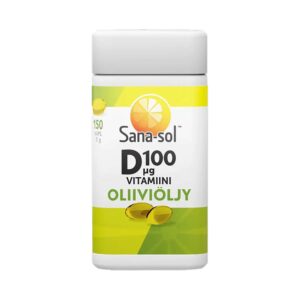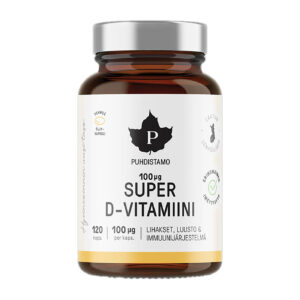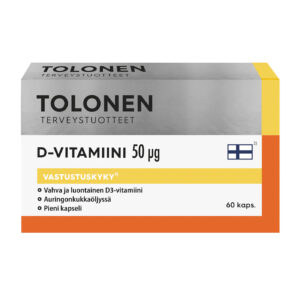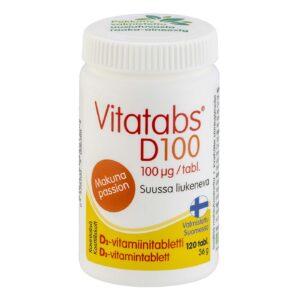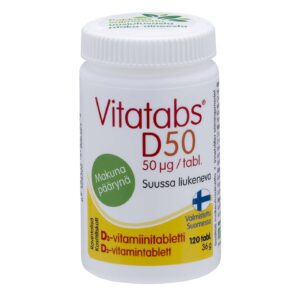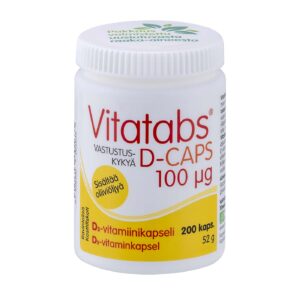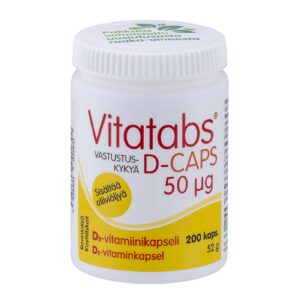Discover the powerful benefits of Vitamin D for bone health, immunity, and aging. Learn why Scandinavian Vitamin D supplements are trusted worldwide for quality, purity, and effectiveness. Get expert tips on dosage, sources, and how to boost your health naturally!
Vitamin D, often called the “sunshine vitamin,” has long been recognized for its vital role in bone health. But recent groundbreaking research reveals that vitamin D’s benefits go far beyond just supporting your skeleton. From slowing biological aging to boosting immunity and preventing chronic diseases, vitamin D is a powerhouse nutrient that everyone should know about.
In this comprehensive guide, we’ll explore what vitamin D is, why it’s crucial for your health, how much you need, and how to get it safely — whether from sunlight, food, or supplements. Plus, we’ll dive into the latest scientific discoveries that make vitamin D one of the most important supplements of 2025.
What Is Vitamin D?
Vitamin D is a fat-soluble vitamin that your body produces when your skin is exposed to sunlight, specifically ultraviolet B (UVB) rays. It can also be obtained through certain foods and dietary supplements. Unlike most vitamins, vitamin D acts like a hormone in the body, regulating numerous biological processes.
The two main forms are:
- Vitamin D2 (ergocalciferol): Found in some plants and fungi.
- Vitamin D3 (cholecalciferol): Produced in your skin and found in animal-based foods; it is more effective at raising blood levels of vitamin D.
Why Is Vitamin D So Important?
1. Supports Bone and Muscle Health
Vitamin D promotes calcium absorption in the gut, maintaining adequate calcium and phosphate levels in the blood to support healthy bones and teeth. Deficiency can lead to bone disorders such as rickets in children and osteomalacia or osteoporosis in adults.
2. Boosts Immune Function
Vitamin D plays a crucial role in both innate and adaptive immunity. It helps your body fight off infections, reduces inflammation, and may lower the risk of autoimmune diseases.
3. May Slow Biological Aging
A landmark randomized controlled trial (the VITAL study) published in 2025 found that vitamin D supplementation can slow the shortening of telomeres — protective caps on the ends of chromosomes that naturally shorten as we age. This shortening is linked to age-related diseases like cancer and autoimmune conditions. The study showed that taking 2,000 IU of vitamin D daily over four years slowed telomere shortening equivalent to reversing nearly three years of biological aging13567.
4. Reduces Risk of Chronic Diseases
Higher vitamin D levels are associated with a lower risk of cardiovascular disease, certain cancers (breast, colorectal, prostate, lung), diabetes, and cognitive decline. It also supports brain health and may reduce dementia risk8.
5. Improves Pregnancy and Birth Outcomes
Vitamin D is vital during pregnancy for fetal development and may reduce complications such as preeclampsia and low birth weight8.
How Much Vitamin D Do You Need?
The optimal vitamin D blood level is generally considered to be between 40 and 70 ng/mL (nanograms per milliliter) for most health benefits. Many experts recommend a minimum of 30 ng/mL to prevent deficiency-related issues8.
Recommended Daily Intake
- General adults: At least 2,000 IU (50 mcg) per day to maintain sufficient levels.
- Higher doses (4,000–6,000 IU): May be needed to reach optimal blood levels, especially in people with obesity, limited sun exposure, or certain health conditions.
- Older adults and high-risk groups: Should consult a healthcare provider for personalized recommendations.
Current government guidelines tend to be conservative and focus mainly on bone health, but emerging evidence supports higher doses for broader health benefits8.
How to Get Enough Vitamin D
1. Sunlight Exposure
The most natural way to get vitamin D is through sunlight. About 10-30 minutes of midday sun exposure several times a week on bare skin (without sunscreen) can generate sufficient vitamin D for most people. However, factors like latitude, season, skin pigmentation, age, and sunscreen use affect vitamin D synthesis.
2. Dietary Sources
Few foods naturally contain vitamin D, but these are good sources:
- Fatty fish (salmon, mackerel, sardines)
- Cod liver oil
- Egg yolks
- Fortified foods (milk, orange juice, cereals)
3. Supplements
Vitamin D supplements are an effective way to ensure adequate intake, especially in regions with limited sunlight (like Scandinavia) or for people with increased needs. Vitamin D3 supplements are preferred for their superior efficacy.
Who Is at Risk of Vitamin D Deficiency?
- People living in northern latitudes or areas with little sunlight.
- Older adults with reduced skin synthesis.
- Individuals with darker skin tones (melanin reduces vitamin D production).
- People who spend most of their time indoors.
- Those with malabsorption conditions (e.g., celiac disease, Crohn’s).
- Obese individuals (vitamin D is sequestered in fat tissue).
- Breastfed infants without supplementation.
Vitamin D deficiency can cause fatigue, bone pain, muscle weakness, and increase susceptibility to infections and chronic diseases.
Vitamin D and Aging: What the Latest Research Shows
The 2025 VITAL study sub-analysis is a game-changer in understanding vitamin D’s role in aging. It demonstrated that vitamin D supplementation protects telomeres, the DNA sequences that shorten with age and are linked to chronic diseases13567.
- Participants taking 2,000 IU daily for four years showed significantly less telomere shortening compared to placebo.
- This effect corresponds to about three years of reduced biological aging.
- Vitamin D’s anti-inflammatory properties and disease risk reduction may contribute to this protective effect.
While more research is needed to fully understand the clinical implications, this study highlights vitamin D’s potential as a key nutrient for healthy aging.
Common Myths About Vitamin D
Myth 1: You Can Get Enough Vitamin D from Sunlight Alone
While sunlight is a primary source, many people don’t get enough UVB exposure due to lifestyle, geography, or skin protection habits.
Myth 2: More Vitamin D Is Always Better
Excessive vitamin D intake can cause toxicity, leading to hypercalcemia (high blood calcium), kidney damage, and other issues. Always follow recommended doses and consult a healthcare provider.
Myth 3: Vitamin D Supplements Are Only for Bone Health
Vitamin D supports multiple systems, including immune, cardiovascular, brain, and metabolic health.
Tips for Choosing a Vitamin D Supplement
- Opt for Vitamin D3 (cholecalciferol): It’s more effective than D2 at raising blood levels.
- Check dosage: Typical doses range from 1,000 to 5,000 IU per capsule or tablet.
- Look for third-party testing: Ensures purity and potency.
- Consider combined supplements: Some products include vitamin K2, which works synergistically with vitamin D for bone and cardiovascular health.
- Consult your doctor: Especially if you have health conditions or take other medications.
Conclusion: Why Vitamin D Should Be Part of Your Daily Wellness Routine
Vitamin D is much more than just a vitamin — it’s a vital hormone that influences your immune system, aging process, chronic disease risk, and overall well-being. With modern lifestyles limiting sun exposure and increasing health challenges, supplementing with vitamin D3 at appropriate doses is a simple, effective way to support long-term health.
The latest scientific evidence, including large-scale randomized trials, underscores vitamin D’s role in slowing biological aging and protecting against inflammation and age-related diseases. Ensuring you get enough vitamin D through sunlight, diet, and supplementation is a powerful step toward a healthier, longer life.
Frequently Asked Questions (FAQs)
Q: How do I know if I’m vitamin D deficient?
A: Symptoms include fatigue, bone pain, muscle weakness, and frequent infections. A blood test measuring 25(OH)D levels can confirm deficiency.
Q: Can I take too much vitamin D?
A: Yes, excessive intake can cause toxicity. Follow dosing guidelines and consult your healthcare provider.
Q: Is vitamin D safe for children and pregnant women?
A: Yes, but doses should be age-appropriate and supervised by a healthcare professional.
Q: Does vitamin D help with COVID-19?
A: Vitamin D supports immune function and may reduce respiratory infection risk, but it’s not a cure or substitute for vaccination.
Why Choose Vitamin D from Scandinavia?
Vitamin D supplements sourced from Scandinavia stand out globally for their exceptional quality, safety, and effectiveness. This reputation is built on several key factors:
- Strict Regulatory Standards and Quality Control
Scandinavian countries, including Sweden, Norway, Denmark, and Finland, enforce some of the world’s most rigorous food safety and supplement manufacturing regulations. Vitamin D products undergo thorough testing and quality assurance to ensure purity, potency, and safety for consumers67. - Advanced Fortification Policies and Public Health Expertise
Nordic countries have pioneered successful vitamin D fortification programs in foods like milk and margarine, significantly improving population vitamin D status. This public health leadership reflects deep scientific expertise and commitment to optimal vitamin D nutrition45. - Sustainable and Transparent Production
Scandinavian vitamin D, often derived from lanolin through robust, controlled processes, meets high standards for sustainability and traceability. This ensures supplements are produced ethically with minimal environmental impact7. - Tailored for Low Sunlight Regions
Given the long, dark winters and limited UVB sunlight in Scandinavia, local vitamin D products are formulated with an acute understanding of deficiency risks and optimal dosing, making them especially reliable for maintaining healthy vitamin D levels28. - Trusted by Healthcare Professionals and Consumers
Scandinavian vitamin D supplements enjoy widespread trust among healthcare providers and consumers alike, supported by extensive research and public health programs that emphasize their efficacy and safety36.
Choosing vitamin D from Scandinavia means opting for a product backed by science, quality, and a strong tradition of promoting health in challenging northern climates. Whether you live in a sunny or less sunny region, Scandinavian vitamin D supplements offer a dependable way to support your immune system, bone health, and overall wellness.
References
- Harvard Gazette, 2025: Vitamin D supplements may slow biological aging 1
- The American Journal of Clinical Nutrition, 2025: VITAL study findings 135
- VitaminDWiki, 2025: Evidence-based health benefits and dosage recommendations8
- Healthline, 2025: Vitamin D and biological aging 6
- Scientific American, 2025: Vitamin D and DNA protection
Vitamin D benefits, Vitamin D supplementation, Vitamin D and aging, How much Vitamin D to take.







